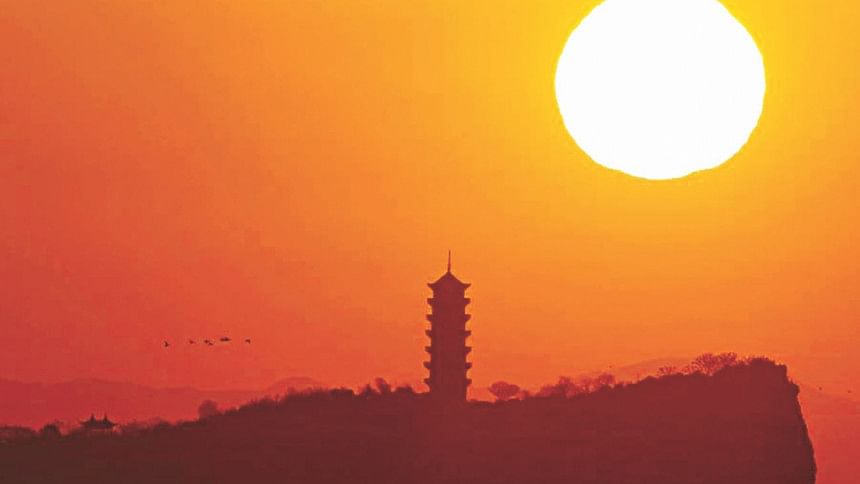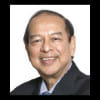The new sun that reddens the East

In China, in the 1950s and '60s, the most popular song was entitled, "Dongfang Hong," or "The East is Red". Unmistakably, and understandably, it eulogised the Great Helmsman of the Peoples' Republic, Mao Zedong. The lyrics, an unabashed paean of fulsome praise to the undisputed leader, ran thus: "Dongfang Hong, from China comes Mao Zedong … Hurrah he is the Great Saviour, Lead us forward,…Hurrah he is our guide!" Much has changed in China since then. Mao still remains the most significant frame of historical reference for Chinese socialism. But new ideas, and new methodologies to implement them, have taken root. The fountainhead from which these flow is the current strongman, President Xi Jinping. He has incrementally built upon China's successes achieved in stages. Today as America under the mercurial stewardship of Donald Trump withdraws into isolationist unilateralism, a different paradigm of worldview is offered by Xi Jinping. It involves collaborative multilateralism in which he, despite his protestations to the contrary, is seen as carving out for himself a key role. So, might he be the "new sun that reddens the east"?
His conduct of the recently concluded Shanghai Cooperation Organization (SCO) in Qingdao, China, lends credence to the view that he might aspire to that position. The driving force behind the SCO are China and Russia. It was originally founded in 1996, focussed on security and counterterrorism in Central Asia. Till recently it comprised China, Russia, Kazakhstan, Uzbekistan, Kyrgyzstan, and Tajikistan. Somewhat chary of the burgeoning Chinese influence, the Russians brought in India as a possible counterweight. China responded by inducting Pakistan. But within the past year, Xi managed to assuage Russia's Vladimir Putin. Their current bonhomie also owes to the somewhat inexplicable public description of China and Russia as "strategic rivals" by the United States. Also, Xi sought, with a modicum of success, to erode the suspicions of India's Narendra Modi.
Perhaps in pursuit of a broader vision, he put differences with India in the backburner for now. Even Pakistan he now sees not as a counterpoise to India, but as a tool for his much-vaunted mega-plan of global connectivity through the Road and Belt Initiative or BRI. Both India and Pakistan also seemed to defer to Xi's sentiments. At Qingdao, for once, the two adversaries desisted from queering the pitch by raising their somewhat tedious bilateral spats. That was no mean achievement for the Chinese hosts. Immediately after a Summit of the larger Western Allies in Canada ended in utter disarray amidst Trump's tariff threats aimed at his traditional partners, Xi sallied forth at Qingdao, with trenchant criticism of protectionism as "self-centred" and "short-sighted". Clearly unhappy with America-threatened trade measures against China, Xi criticised the tendency to "seek absolute security for oneself at the expense of others." Xi might well have been articulating the feelings, left unsaid for understandable strategic reasons, of Canada's Justin Trudeau, Germany's Angela Merkel, France's Emmanuelle Macron and Japan's Shinzo Abe. Xi might not yet be seen as "the global leader of free trade," but he appeared to be very much in the running for the cognomen.
There is a need to understand the basis of how China's and Xi's thinking have evolved in order to comprehend China's current behaviour pattern. The Chinese generally reach out into the past to shape their present. Philosophically, to the Chinese, everything in the world has two seemingly opposing elements. The quality of life depends on bringing such opposing tendencies into balance with one another. Take for instance the idea of Yang represented by the sun, and Yin by the moon. The Emperor in ancient China had the task of maintaining a harmonious balance between the two to keep the heavens and earth running smoothly. With the Emperor disappearing from the scene, the function devolved on the current authority, the Chinese Communist Party (CCP).
However, this balance of contradictions had to be tilted so that the positive side is more weighted. Otherwise, a perfect balance could, mathematically, impede any movement, even towards a positive direction. Enter the thinker, Friedrich Hegel. The Chinese borrowed his dialectical progression via thesis, anti-thesis, and synthesis. This provided the necessary kinetic energy to bring about forward propulsion of the thought-process. Just as the kite rises against the wind, ideas surmounted opposing elements. That brought Marxism, the guiding philosophy of the worker-peasant revolution of 1949, and thereafter the oft-cited "socialism with Chinese characteristics" into line with the Chinese value-system. The ensuing inexorable march of history led to eschewing any form of stridency. Indeed, with regard to what the world today calls the "rise of China", the Chinese shy away from any mention of "rise" as too ambitious. Instead they describe their efflorescence to their current status simply as "peaceful development".
Yet, if needs be and if this historical process is impeded, force has to be used to restore order, and in defence of "core interests". Hence the assertive tendencies at times, backed by a powerful conventional People's Liberation Army and nuclear capability. But even an orderly society may produce waves. Therefore, the requirement for a helmsman to guide the ship of society when the sea is rough. Thus arises the need for the Emperor, or a Sun Yat-sen, or a Mao Zedong, a Deng Xiaoping and now Xi Jinping. That, somewhat simply stated, is the theoretic matrix of China's policy evolution.
The Chinese like to express themselves in maxims and metaphors. Deng had urged: "Hide your capabilities and bide your time". That might have become somewhat dated. Today's leadership seem to prefer demonstration of power to concealing it. Deng opened the economy, and his market-orientation brought China the enormous prosperity it enjoys today—all within socialist parameters, with some principles tweaked. Xi's motivation is imbued with a sense of nationalism, but one that is of a peculiarly Chinese strain. His mantra is Zhung Guo Meng, or "China Dream". It broadly comprises three elements. One, "a new kind of big-power relationship with the US" (equality); two, "win-win relationship with partners"; and three, boosting the domestic economy by stimulating demand. The major fruition of the "China Dream" is the Road and Belt Initiative, one interconnecting seventy countries across the world, as well as Europe and China by land and sea.
China's strategic relations with Pakistan, once designed as a counter against India, is now viewed as a major lynchpin in this connectivity. That is also how China views the rest of South Asia including, significantly for us, Bangladesh. Hence also the endeavours to bring India around, despite some hesitations on Delhi's part. When confronted with resistance that cannot easily be overcome, as with India, the Chinese proffer the adage: "Shelve differences and find common grounds".
Andre Gunder Frank, the German-American sociologist, had once stated that the only thing to fear about a rising China was America's response to it. The historian Niall Ferguson had coined the term "Chimerica" to describe the duo. Kevin Rudd, the Australian scholar- politician, had spoken of an "asymmetric balance" in the contemporary world, with a military one in favour of the US, and an economic one in favour of China. To Jeffery Sachs, the economist, China is the most successful development story of history.
However, the Chinese themselves, Xi included, seem almost demure with regard to such assessments. But make no mistake. China is quietly moving to position itself pivotally on the globe. Its external policy resembles a river that meanders, but does not suddenly change course. Even its "revolutions" are elements of a broader pattern of "evolution". Its major watershed points in historical changes are connected. There is, thus, a method in the dragon's moods. Its leaders, Xi included, take a sweeping view of history. They believe that time is on China's side. Also, that it is not of the essence. It is said that once asked about the impact on history of the French Revolution, which occurred in 1789, Zhou Enlai, Prime Minister of China from 1949 to 1976, famously replied: "It is too soon to tell!"
Dr Iftekhar Ahmed Chowdhury is a former foreign adviser to the caretaker government of Bangladesh and is currently Principal Research Fellow at the Institute of South Asian Studies, National University of Singapore.

 For all latest news, follow The Daily Star's Google News channel.
For all latest news, follow The Daily Star's Google News channel. 



Comments